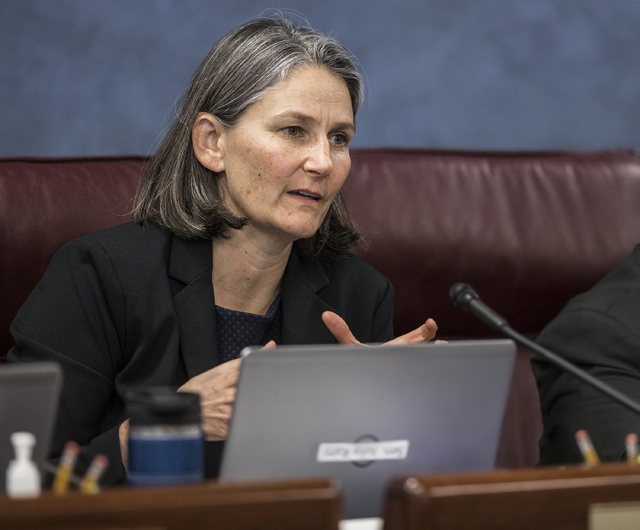BLOG: Nevada Gov. Brian Sandoval vetoes bill to make some public-employee retiree information secret

CARSON CITY — Gov. Brian Sandoval this evening vetoed a bill that sought to make some information about public-employee retirees secret, ostensibly to thwart identity theft.
In his veto message, Sandoval said the goal of protecting public employee information from misuse was a “worthy endeavor.” But he added that making certain information (number of years of service credit and retirement date) secret wasn’t the way to go.
“But SB 384 seeks to achieve its goals by limiting the public’s right to access public information, upsetting the established balance between privacy and transparency,” the governor wrote. (Also, he didn’t add, if preventing identity theft was really the goal, why would the bill leave the retiree’s name and amount of annual pension public?)
“In deciding how to balance these competing interests, the public’s right to know cannot be compromised absent a compelling case that such limits are justified and in the public interest,” Sandoval wrote. “SB 384 does not overcome this significant test in favor of less transparency. Although the proponents raised the possibility of identity theft, there is no assurance that SB 384 would actually prevent such risk.”
In fact, the original bill said the name, last public employer and amount of annual benefit of a PERS member would be public. That was changed through an amendment to make names secret, replaced by an “identifying number.” That was changed yet again in a second and final amendment to the bill, originally introduced by state Sen. Julia Ratti, D-Sparks.
“And while there is a need for greater certainty in this area of law, it is unlikely that SB 384 would lead to fewer disputes,” Sandoval added. “Litigation over public records is often fact-specific, and no matter how bright the statutory lines, there will always be factual disputes that the statutes do not contemplate and the courts will need to clarify.”
Indeed, notwithstanding court rulings that directed PERS to release information to media and other groups, PERS has not only exercised its legitimate rights to appeal, but has also attempted through sheer chicanery to conceal manifestly public information from the public by changing the way records are kept.
“In short, the dilution of the public’s right to know must be accompanied by a compelling interest or distinct harm to personal information,” Sandoval concluded in his veto message. “The proponents of this bill have not demonstrated such a compelling interest or harm.”
The bill will now be returned to the Senate, where senators will decide whether to attempt to override the governor’s veto. However, the measure passed the Senate on a vote of 11-10, with Las Vegas Democrat Nicole Cannizzaro joining minority Republicans in voting no. The Senate would have to muster 14 votes to override the governor’s veto. The bill passed the Assembly on a vote of 25-14; in that house, 28 votes would be necessary to override.












